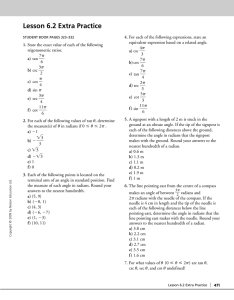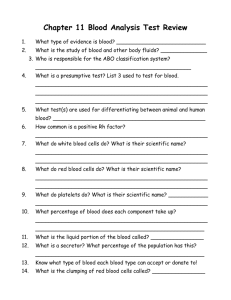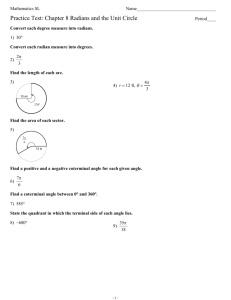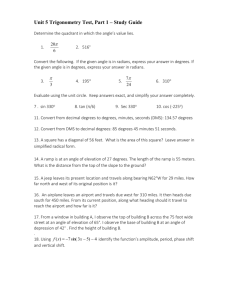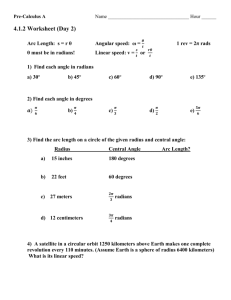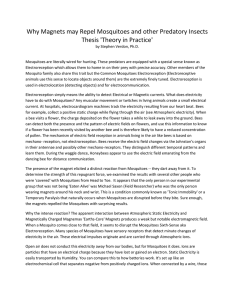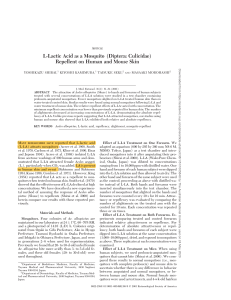Pre-Calculus Review
advertisement
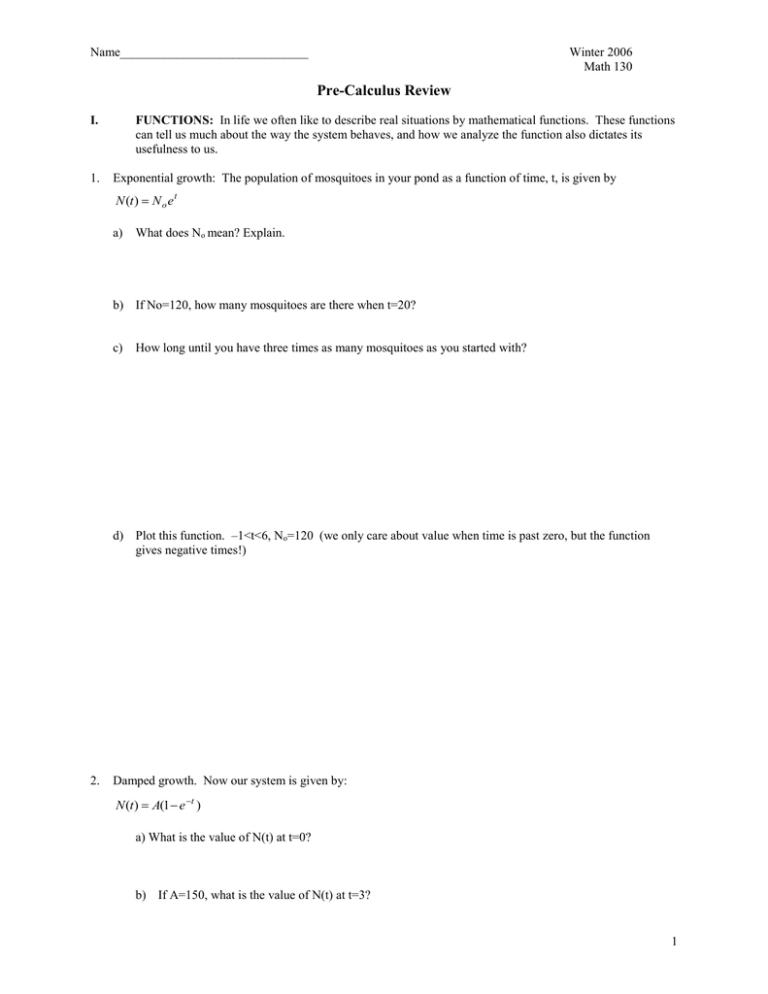
Name______________________________ Winter 2006 Math 130 Pre-Calculus Review I. 1. FUNCTIONS: In life we often like to describe real situations by mathematical functions. These functions can tell us much about the way the system behaves, and how we analyze the function also dictates its usefulness to us. Exponential growth: The population of mosquitoes in your pond as a function of time, t, is given by N (t ) N o e t a) What does No mean? Explain. b) If No=120, how many mosquitoes are there when t=20? c) How long until you have three times as many mosquitoes as you started with? d) Plot this function. –1<t<6, No=120 (we only care about value when time is past zero, but the function gives negative times!) 2. Damped growth. Now our system is given by: N (t ) A(1 e t ) a) What is the value of N(t) at t=0? b) If A=150, what is the value of N(t) at t=3? 1 Name______________________________ c) Winter 2006 Math 130 What is t when N(t) is half of A? d) Plot N(t) for A=150 for 0<t<10. e) II. 1. What does A represent? Explain. Angles and Trigonometric Functions: We use units like feet or meters to measure the physical length of an object, but what about the angle it subtends in our field of view? We use an angle measurement, which is in degrees or radians. Radians and degrees: If the distance to the center of the earth from the surface is approximately 1,000miles, how fast are we moving with respect to the center of the earth in mph? (question: why don’t we fly off into space?) 2 Name______________________________ 2. For what angle(s) is the following equation true: sin( ) cos 3. Winter 2006 Math 130 1 0 4 Prove the following: tan( ) cos( ) sin 1 sec cot cot 4. A large building casts a shadow 30ft long. If, at the edge of the shadow, you measure the angle the building subtends from the ground to its top as 73o, how tall is the building? 3
